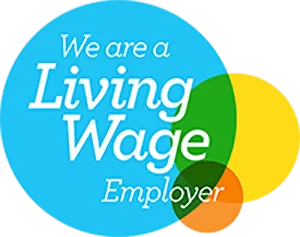We often say our products are certified to help those who produce them in “less developed nations”, but what does that really mean?
What is a “less developed nation”?
A less developed nation is seen as a country that is lacking in terms of infrastructure, economy, or industrial base. Along with this, the people of a less developed nation will generally have lower standards of living due to poverty and low incomes. But there is often confusion about what to call these countries, some refer to them as “third world countries”, whilst others call them “developing nations”.
Developing nation vs third world country
Generally referred to by some as “third world countries” but this is a dated, Cold War era term, that is no longer relevant. “First world countries” were those that were aligned with the West, where “second world countries” were those aligned with Communist Russia. Now, of course, none of this makes sense as these divisions are no longer around.
“Third world countries” were generally referred to as “everyone else” (i.e. Greenland, Thailand, Nigeria and the UAE).
As such, “third world country” is a political term that in reality doesn’t really refer to anything!
Developing?
Some of these nations, such as Somalia or Syria, are not developing but are referred to as developing nations. Does this mean that our measures are incorrect?
According to the GDP rates to the United Nations [UN], Iraq is 56th in the world with Iceland at 123rd. Does this mean Iceland is more poverty stricken, or is the measure incorrect?
What term should we use?
“Countries on the UN’s list of Least Developed Nations” – Catchy isn’t it?!
Why should we help these countries?
Looking at Hans Rosling’s Yardstick of Wealth, the richest 1 billion earn almost $100 a day and the poorest earn $1 per day (also supported by Boylan, 2008). Extreme poverty is shown by the UN as those that earn just over $1 per day – this is where the family cannot guarantee they will be able to afford food.
The issue is that those earning $100 per day (developed countries’ perspective) cannot see the difference between someone earning $10 per day and $1 and assuming “they are all poor”. The difference between the two is ENORMOUS.
It is therefore important that we provide assistance to those who need it, not through handouts and donations, but through providing opportunities for growth and development. Although, these opportunities need to be free from exploitation.
Why should we care?
Poverty is seen as an unjust condition, one that people in these less developed nations deal with on a daily basis. Consider these points:
- Poverty means wasted lives
- Poverty leads to desperation and crime
- Poverty leads to illness and health problems
- Poverty can lead to war
How can you help?
There are lots of ways you can help, consider the following…
Your consumption
Consider what you are buying.
- Do you need to buy it? Try to cut down consumption, where you can (see info on the waste hierarchy here)
- Who made that product?
- What conditions did they go through?
But how could you know without viewing how it was made?
Accreditation
Accreditation shows that an organisation has met internationally-accepted standards, and has been certified for meeting this requirement.
Fairtrade, for instance, provides better prices, better working conditions and fair terms of trade for farmers and workers. It symbolises that the work carried out in making that product is ethical and that the people who worked on that product and the environment that surrounds them have had their futures protected.
Other accreditation could include:
- Fairwear Foundation
- SA8000
- OEKO-TEX Standard 100

Want to learn more about Fairtrade Clothing?
How do I purchase products that help less developed nations?
If you’d like to know more about our ranges of clothing that support less developed nations, get in touch with us on 01244 456110, or click here to contact us to ask us more.

